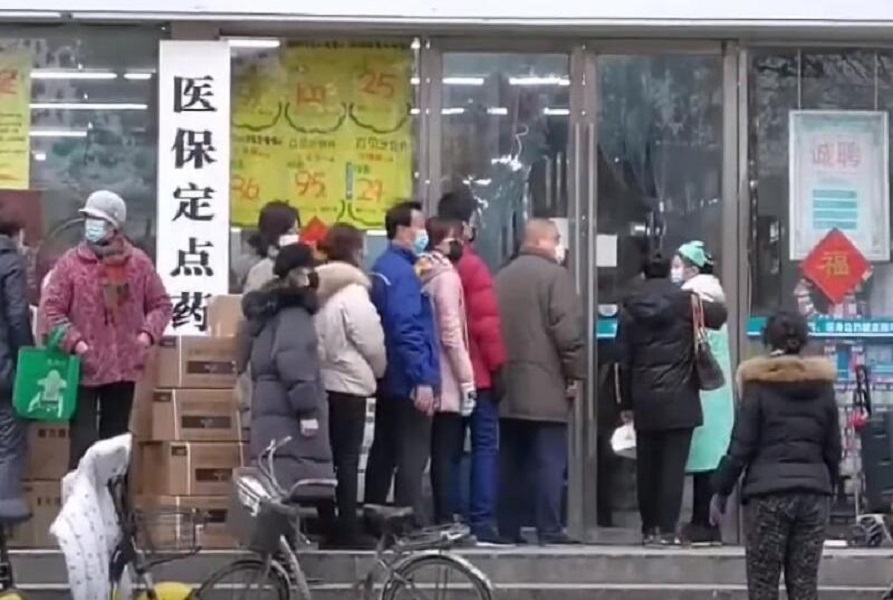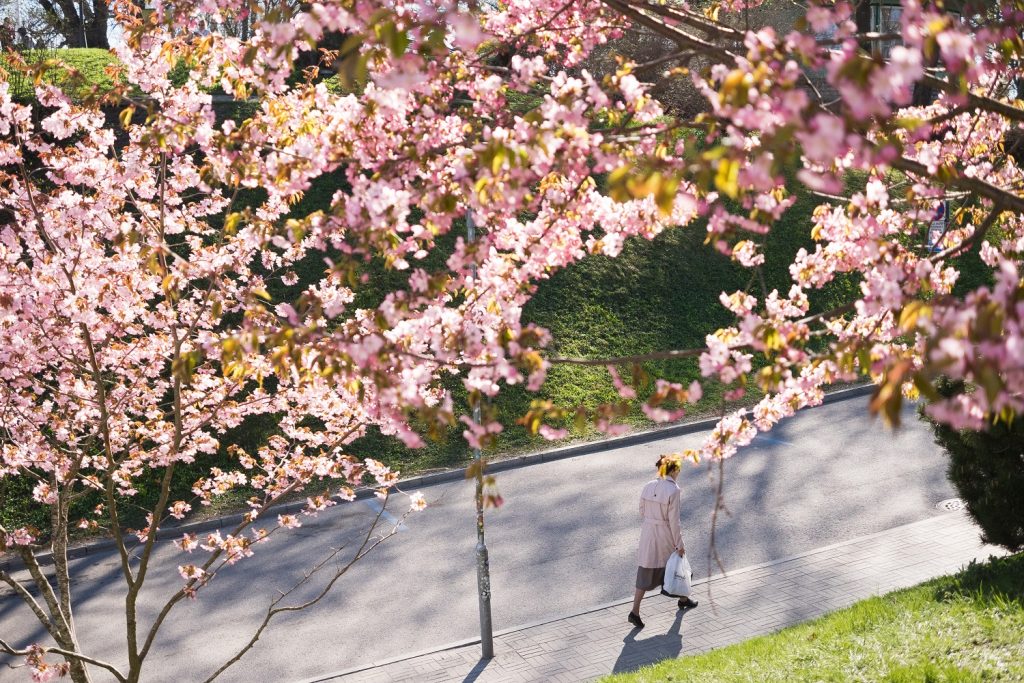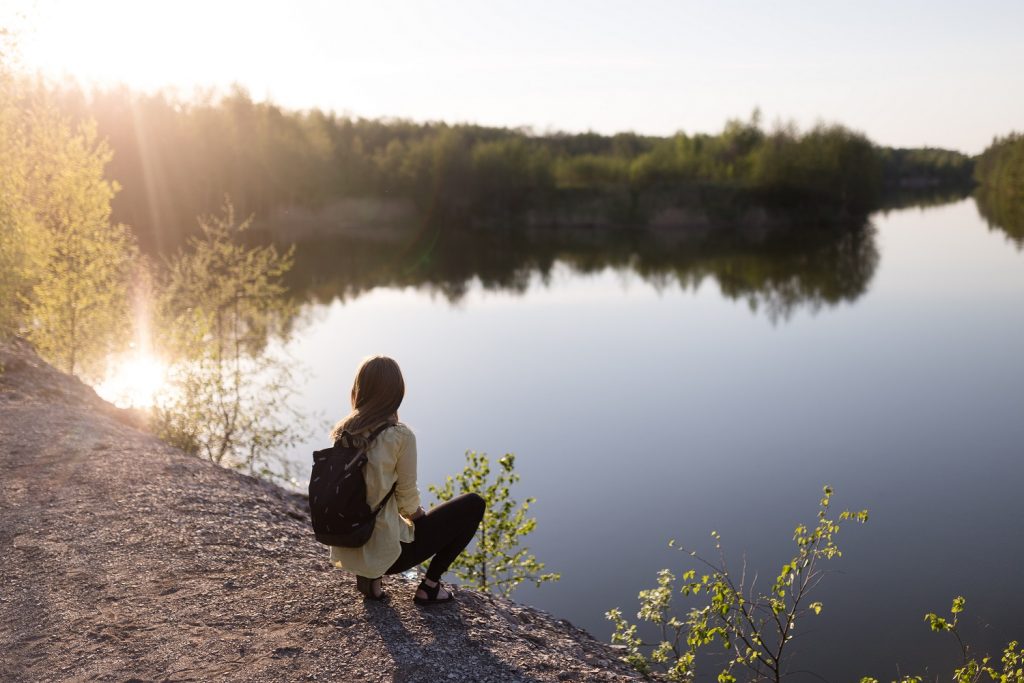Many people are concerned about how to prevent mass panic around the coronavirus, but Adam Rang, a regular contributor to Estonian World and a trained crisis communications professional, argues that people generally don’t panic in times of crisis – as long as you give them good information.
We have nothing to fear but fear itself.
At least that’s what I keep hearing about the coronavirus when I open up the social media. Many people think the coronavirus is not as bad as the media hysteria and mass panic around it. Elon Musk, for example, is one of the most vocal proponents of this theory after first declaring that the “coronavirus panic is dumb” in a tweet two weeks ago that has already aged like milk.
I don’t have any expertise in viruses, but I can tell you a few things about how people really respond in times of crises – and it’s not panic. I’ve been trained in crisis management throughout my career in communications and I’ve been involved in quite a few major ones myself.
The golden rule of crisis communication is to trust the public with as much accurate and up to date information as possible. That’s because people, generally, act rationally in times of crisis, especially if you give them good information. Mass panic is a myth.
China’s censorship made the crisis worse
The same is true now
with the coronavirus.
In the areas
currently worst affected by the virus, such as in China and Italy, people are
showing resilience more than anything else. There are wide reports of
incredible acts of bravery, especially by medical workers, and most people are
just adapting to the situation and trying to keep spirits up, both for
themselves and others. There is concern, sadness and anxiety to a reasonable
extent, but not mass panic. These people need even more and better information
about the situation they are battling through, not this patronising attitude
that they can’t handle the truth about what is happening.
In fact, it’s the fear of mass panic over the coronavirus that got us into this mess. Elon Musk’s theory that panic over the coronavirus is worse than the virus itself was originally shared by communist authorities in China, which is why they first prioritised arresting doctors and censoring information to avoid what they feared would be mass panic. Yet good information, widely shared and trusted, is essential to fighting this virus. The theory that media hysteria around the coronavirus is worse than the virus is slightly undermined by the fact that the earliest epicentres of the outbreak did not have a free press who’d be allowed to talk about coronavirus.
As far back as 31 December, the Chinese social media began blocking messages that contained any keywords relating to the outbreak, such as “Wuhan pneumonia”. A day earlier, a doctor in Wuhan, named Li Wenliang, tried to advise medics that they should take extra precautions due to the outbreak, but he was later arrested for “severely disturbing the social order”. He later died of the virus he tried to warn about. It wasn’t until 20 January that the Chinese president, Xi Jinping, spoke publicly about the virus.

Adapting to the crisis
They were wrong then and Elon Musk is wrong now. It’s not the fear of the virus that is the problem. It’s the fear of the fear of the virus that is the problem.
Since then, we have seen other authoritarian leaders repeat those mistakes by instinctively fearing how the masses would react if they knew the scale of the problem and so covering up the virus instead of combating it. It’s strange because authoritarian leaders justify their rule by saying they can take tough, decisive actions instantly, yet this crisis is showing even that to be a fraud.
I suspect what Elon Musk really fears is the impact on his business, but panic is still a mischaracterisation of what will happen to it. This crisis will radically alter our economy and transform the market, but that’s not because consumers or investors are acting irrationally. They simply have different needs now. Business will need to adapt too. My own business is mostly focused on sauna tourism to Estonia, which has now disappeared. Instead, we are urgently redirecting more of our efforts into sauna exports, which has had a surprising boost in interest over recent weeks.
Estonians are relaxed enough
Is there really mass panic here in Estonia, though? Look up from your social media feed and tell me honestly if you are seeing evidence of that around you. Arguably, most people are probably a bit too relaxed at this stage about the measures needed to suppress the spread of the virus.
I wouldn’t even count “panic buying” as panic because most people are calmly buying what they need, relative to the circumstances. They’ve been correctly advised to stay in as much as possible, which means not eating out or going shopping regularly. Schools and offices are closed anyway so more people have to eat at home. Inexperienced cooks tend to overestimate how many ingredients they need. In addition to all that, they face the very real prospect of having to isolate at sudden notice, at which point it would be more selfish not to have their own supply to sustain themselves without going out during that period. Compared with all this, the sudden increase in food purchases is fairly moderate and completely rational.

Seeing someone buy more food than usual right now is no more a sign of panic than seeing someone put their seatbelt on when they get into a car, even though the odds of them being in a car crash are far lower than getting coronavirus and needing to self-isolate.
Perhaps the worst interpretation of empty shelves is from the people who compare this situation to life under communism. Modern supermarkets have sophisticated supply chains with “just-in-time” deliveries, which helps lower costs for everyone but doesn’t give us much flexibility when there is a sudden change in shopping behaviour. Slight fluctuations can lead to empty shelves, but they will keep getting restocked every day. The supermarkets will need to adjust to the new patterns of shopping behaviour during this crisis as people buy larger quantities less frequently. Still, I don’t think anyone would want to pay more for their groceries so that their local supermarket can switch to in-house warehousing over just-in-time deliveries.
The most irrational examples of “panic buying” are simply based on inadequate information, which can be fixed with adequate information. Food security is not under threat and neither are toilet paper supply chains, but you can forgive some people for being a bit confused in this rapidly evolving situation instead of sneering at them. By the way, toilet paper takes up lots of shelf space, which is why a small number of hoarders can create the impression that everyone suddenly rushed out to buy it.
Don’t let anyone break down our trust in each other
Bad information can flourish without good leadership based on trust and transparency. It’s also being amplified by disinformation campaigns. Our adversaries don’t just want to create panic but also make you believe that everyone around you is panicking because they know that’s a destructive mentality. By encouraging that perception, the ultimate aim is to break down our trust in each other and in our way of life.
So if you are thinking of denouncing panickers, perhaps by sharing a video on social media about people fighting over toilet paper, pause and consider whether that is really anywhere close to a fair representation of the reality around you. I would encourage you instead to look out for acts of bravery and kindness during these times. There are endless stories to choose from.
Don’t fall into this cult-like mentality that assumes everyone else around you are stupid and panicking. They are not. Have a bit more belief in people. Be kind. We are all in this together and we will get through this. Times of crisis bring out the best in people and if you are sitting at home anxious about what is going to happen then I think it will bring out the best in you too.
For the latest developments in Estonia, follow our special blog on coronavirus.
The opinions in this article are those of the author. Cover: A girl by the lake in springtime in Estonia. Photo by Renee Altrov.

